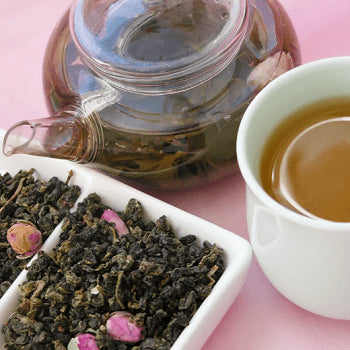Brew up better health with tea
Posted by BEV A

Cup of tea brings beneficial minerals, no calories to table
Tea promotes good health, says Pam Porter, master herbalist and alternative medicine practitioner at Queen City Health.
Green, oolong and black teas are derived from the leaves of the camellia sinensis plant. The length of fermentation and processing determines if a tea is green, oolong or black. Studies have shown these teas contain polyphenols, an antioxidant.
“Regardless of the processing method, all (these) teas contain polyphenols,” the Colorado State University Cooperative Extension Office’s Web site (www.ext.colostate.edu) states. “Polyphenols, like other antioxidants, help protect cells from the normal, but damaging, physiological process known as ‘oxidative stress.”
Janet Egnor drinks Tetley’s British Breakfast Blend every day.
“I always have tea,” Egnor says. “I always keep an extra box on hand. I’m a basket case when I don’t have my tea.”
Herbal tea
Herbal tea, usually made from a blend of leaves, flowers and roots, is not considered “real tea” since it is not derived from the camellia sinensis plant. However, it has other health benefits, HealthLink of the Medical College of Wisconsin’s Web site states.
“There’s an herb for everything,” Porter says.
She suggests a brew made with a blend of catnip and fennel can ease nausea or soothe a colicky baby. If you are having trouble sleeping, try camomile. For energy, drink licorice tea. Sipping garlic or ginger tea can help you fight the flu or a cold.
To learn more about the health benefits of herbs visit Porter’s clinic, Queen City Health. She offers a free educational seminar at 6:30 p.m. every third Monday of the month.
Learning about tea
On a recent trip to England, I was struck by the availability and large variety of teas. You can get a cup of hot tea just about anywhere.
The hot tea was always delicious and cut the chill of the rainy British weather. Although I learned quickly to ask for black tea — in England tea is usually served “white,” with cream and sugar.
While there, my sister-in-law Shu-Min Rice, a native of Taiwan, introduced me to Chinese oolong tea. She blends hers with dried chrysanthemums, which produces a wonderful golden brew and is enjoyed without adding milk, sugar or lemon.
According to www.teaspring.com, oolong tea promotes the metabolism, controls obesity and helps to regulate aging; and chrysanthemum tea has cooling properties that decrease body heat.
Green tea and oolong tea are very medicinal, Porter says.
Green tea supports the immune system and oolong “has components that are good for the digestive system and can ease acid reflux,” she says.
Studies have shown that drinking tea as part of a healthy diet can help fight cancer, heart disease, improve digestion and strengthen the immune system.
“A lot of people drink tea because it tastes good,” Porter says. “But it is also good for you.”
Tea contains minerals like manganese, potassium, zinc and fluoride, which strengthens teeth and bones. Without milk or sugar, tea has no calories and half the caffeine found in an equal-sized cup of coffee.
“At home (in England) when you’ve had a bad day you are always offered a cup of tea,” Egnor says. “Everything will be all right with a cup of tea.”
(By Maria Rice McClure, the leaf chronicle, Oct 2005)
Article URL: http://www.theleafchronicle.com/apps/pbcs.dll/article?AID=/20051019/LIFESTYLE/510190301/1024
TAGS:
SHARE:

AUSTRALIA'S FINEST LOOSE LEAF TEAS
Explore Australia's largest selection of Premium Teas & All-Natural Organic Herbal Blends.


